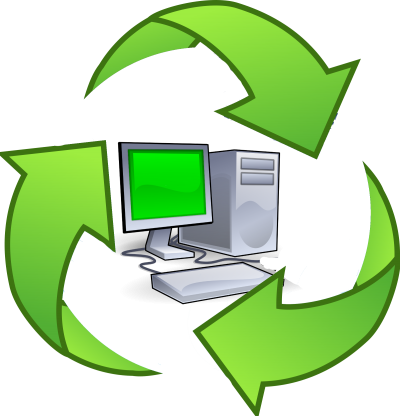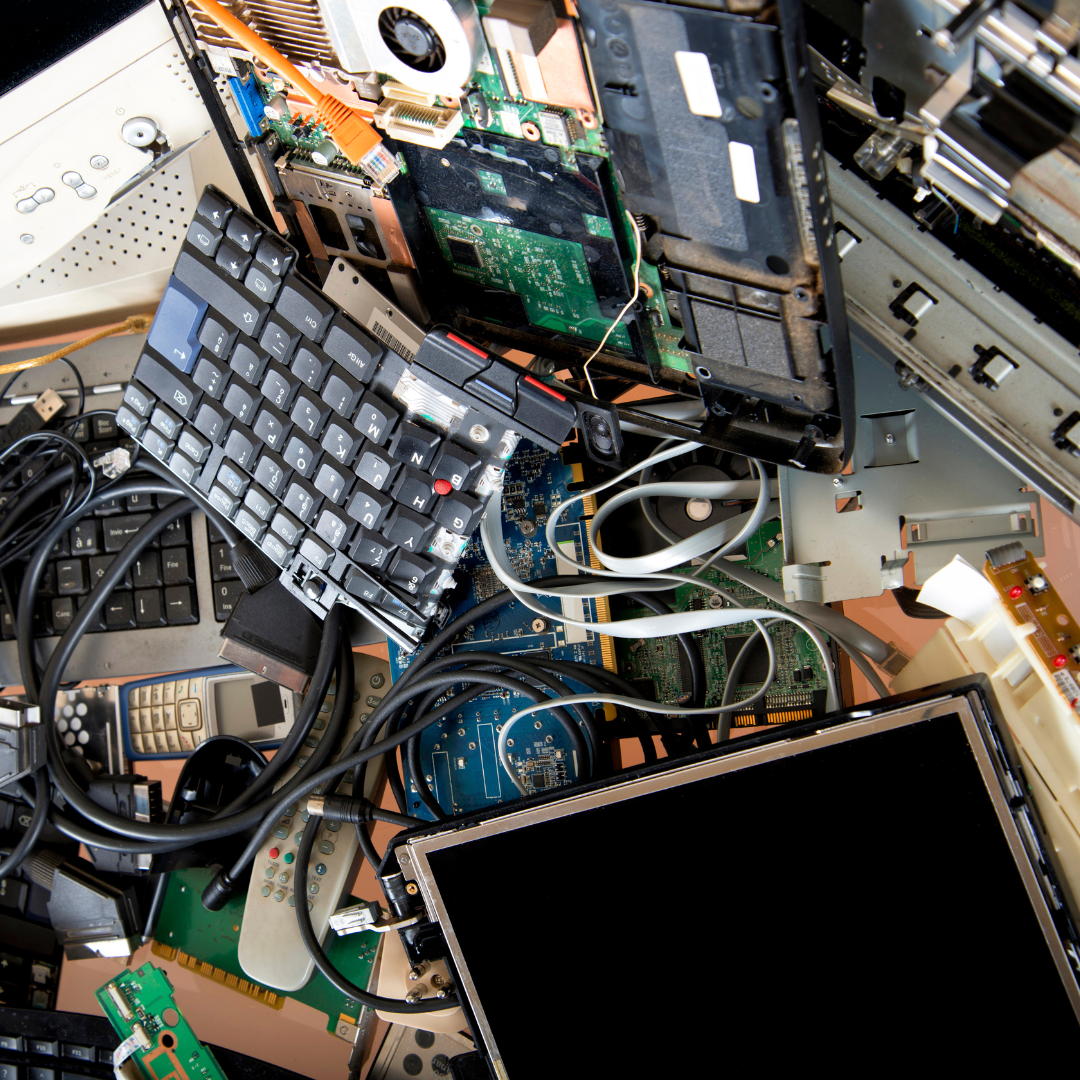Environmental Stewardship: The Importance of Computer Recycling
Environmental Stewardship: The Importance of Computer Recycling
Blog Article
Lasting IT Solutions: Trustworthy Computer Recycling Solutions
In light of this, the need for trustworthy computer reusing solutions has never been more paramount. In this discussion, we will check out the ecological impact of e-waste, the benefits of liable computer recycling, exactly how to choose a trustworthy recycling solution, the recycling procedure for computer systems and digital tools, and the duty of federal government regulations in e-waste administration.
The Ecological Impact of E-Waste
The inappropriate disposal of electronic waste, generally called e-waste, has substantial ecological implications. E-waste describes disposed of electronic devices such as computers, tvs, and mobile phones (computer recycling). These devices consist of unsafe materials such as lead, mercury, cadmium, and brominated flame retardants, which can be harmful to both human health and wellness and the setting if not correctly managed
When e-waste is poorly dealt with, it often winds up in land fills or is incinerated, launching toxic materials into the water, air, and soil. The release of these harmful materials can pollute groundwater, pollute the air, and contribute to dirt degradation, presenting serious health dangers to nearby areas and communities.
Furthermore, the improper disposal of e-waste also contributes to the exhaustion of natural deposits. computer recycling. Lots of electronic tools consist of important steels like gold, silver, and copper that can be recovered and reused if appropriately reused. Nonetheless, when e-waste is not reused, these valuable resources are lost, and the demand for brand-new basic materials increases, leading to enhanced mining tasks and further ecological deterioration.
To mitigate the ecological effect of e-waste, appropriate recycling and disposal methods should be used. This includes the liable collection, dismantling, and recycling of digital gadgets to recuperate important products and guarantee the secure management of hazardous substances. Carrying out effective e-waste monitoring techniques is critical to secure the environment, conserve resources, and advertise a sustainable future.

Benefits of Liable Computer System Recycling
Effectively recycling computer systems uses a wide variety of advantages, consisting of environmental conservation and resource preservation. Responsible computer recycling not only assists prevent electronic waste from winding up in land fills, but it likewise lowers the requirement for resources and power in the production of brand-new tools.
Among one of the most considerable benefits of responsible computer system recycling is the preservation of the environment. When digital waste is poorly taken care of, it can release dangerous substances such as lead, mercury, and cadmium into the dirt and water, positioning a risk to ecological communities and human wellness. By reusing computer systems, these hazardous products can be securely drawn out and taken care of, minimizing the danger of pollution.
An additional advantage is source conservation. Computer systems consist of beneficial products like gold, silver, copper, and aluminum, which can be recouped and reused through recycling procedures. By drawing out and recycling these products, the need for mining new resources is decreased, conserving natural sources and minimizing the ecological effect of resource extraction.
Furthermore, accountable computer system reusing helps to reduce energy usage. Manufacturing brand-new computers requires a substantial amount of energy, from the extraction of basic materials to the assembly process. By reusing computers and reusing their elements, the energy-intensive production process can be prevented, causing a reduction in greenhouse gas emissions and an extra lasting use energy sources.
Exactly How to Choose a Trustworthy Computer Recycling Solution
When choosing a computer system recycling service, it is very important to think about a couple of essential elements to guarantee that you pick a trustworthy and reputable company. Firstly, it is critical to validate if the reusing service complies with appropriate ecological policies and methods. A trustworthy supplier will have accreditations and certifications that demonstrate their dedication to responsible recycling. Try to find qualifications visit this website such as R2 (Responsible Recycling) or e-Stewards, which make certain that the recycling procedure fulfills rigorous standards for environmental management and data safety and security. Check if the service offers protected data devastation. Data protection is a vital worry when recycling computer systems, as sensitive details saved on old gadgets can be vulnerable to theft or misuse. A reliable recycling service ought to have protected information destruction protocols in position, such as information wiping or physical destruction of storage try this site space devices. Furthermore, think about the service's performance history and credibility. Try to find evaluations or testimonies from previous consumers to evaluate their level of customer contentment and reliability. Finally, consider the solution's transparency and responsibility. A reliable copyright ought to be able to offer detailed info about their recycling process, including just how they manage hazardous products and ensure correct disposal. By thinking about these aspects, you can choose a computer system recycling solution that is ethical, trusted, and eco liable.
The Recycling Process for Computers and Electronic Devices
To guarantee accountable disposal and reduce ecological impact, understanding the reusing process for computers and digital tools is necessary when selecting a trustworthy recycling service. The reusing process for these devices commonly involves several stages.
To start with, the devices are collected from people, organizations, or drop-off points. This collection process might entail transportation logistics and safe managing to protect the delicate information included within the devices. When collected, the devices are arranged based upon their type, such as smartphones, laptops, or desktops.
After arranging, the tools go through a comprehensive data devastation process to guarantee that any kind of personal or sensitive information is completely removed. This step is critical to secure the personal privacy and safety of individuals and companies. Information damage techniques might consist of wiping, degaussing, or physical damage of the storage media.
Following, the tools are taken apart into their individual elements. This enables for the splitting up of different materials, such as plastics, steels, and circuit boards. These products are then sent out to specialized recycling facilities for additional handling.
The recycling centers use different techniques to draw out beneficial products from the electronic waste. These products can be reused or repurposed in the production of brand-new items. The remaining waste is gotten rid of in an environmentally responsible way, sticking to regulatory guidelines.
The Role of Federal Government Laws in E-Waste Monitoring
Federal government policies play an important function in the efficient administration of e-waste. With the continual development of the electronics sector and the boosting worry for ecological sustainability, the need for appropriate disposal and recycling of digital waste has become much more evident. Federal government policies aid to make certain that e-waste is handled in a sustainable and accountable fashion.
Among the main functions of federal government guidelines is to set criteria and guidelines for e-waste monitoring. These guidelines define the appropriate approaches browse around this site for collection, transportation, and recycling of electronic waste. By establishing these criteria, governments can make certain that e-waste is handled in such a way that lessens its impact on the atmosphere and human health.
This consists of applying take-back programs, where makers are responsible for collecting and recycling digital waste from customers. These guidelines aid to change the concern of e-waste monitoring from the individual customer to the market, making sure that electronic waste is managed in an extra sustainable manner.

Verdict
Finally, it is important to consider the environmental influence of e-waste and select a credible computer system recycling solution to responsibly deal with electronic devices. By complying with federal government laws and involving in appropriate reusing processes, we can mitigate the negative effects of e-waste on the setting and promote a more sustainable future.
In this discussion, we will discover the ecological influence of e-waste, the advantages of liable computer recycling, how to choose a reliable recycling solution, the reusing process for computers and electronic devices, and the role of federal government guidelines in e-waste monitoring. Computers have beneficial products like gold, aluminum, copper, and silver, which can be recouped and reused via reusing processes.Additionally, responsible computer system recycling assists to minimize power usage. Data safety and security is an important worry when recycling computer systems, as sensitive information kept on old tools can be prone to burglary or misuse. By thinking about these variables, you can choose a computer system reusing service that is ethical, trustworthy, and ecologically responsible.
Report this page